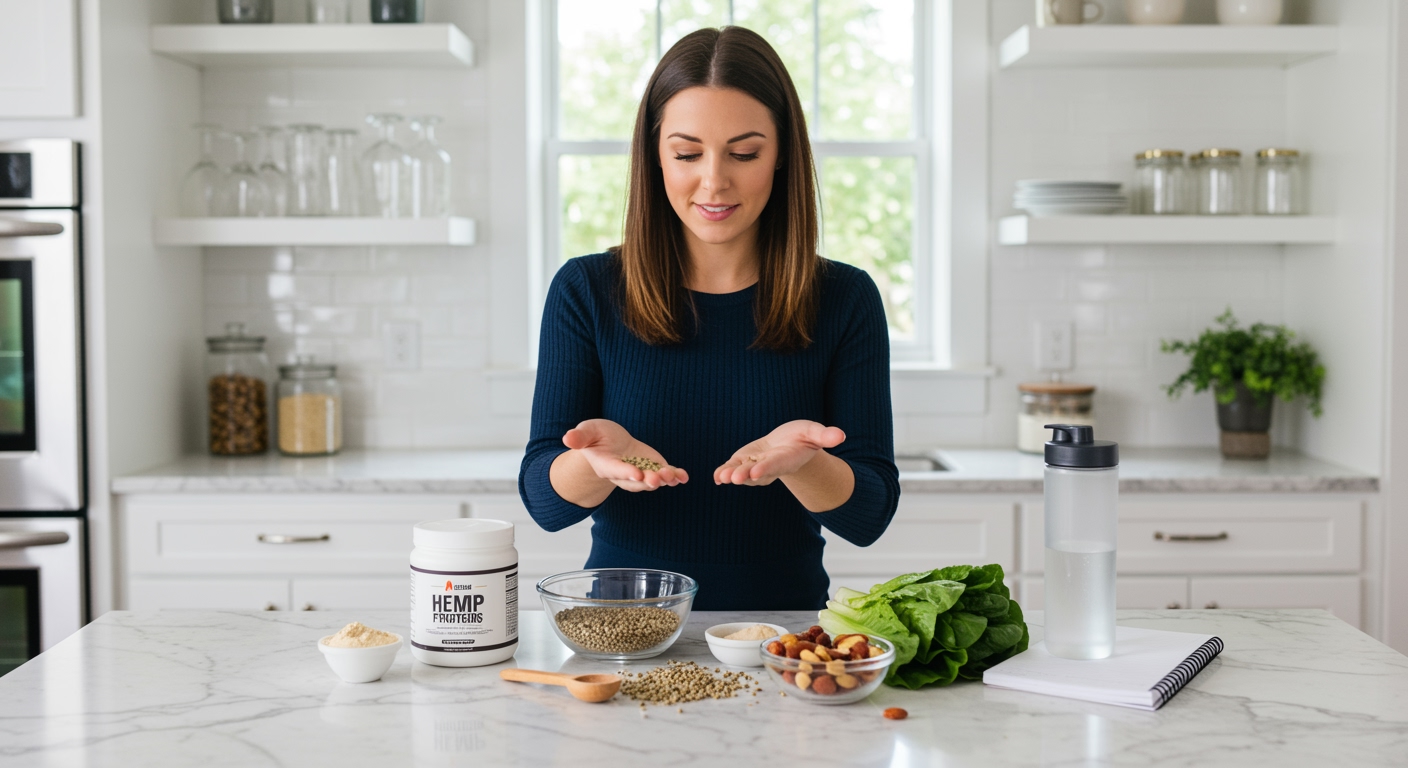✪ Key Takeaway: Rhodiola may help PCOS fatigue by reducing cortisol levels and supporting adrenal function, but evidence remains limited.
Introduction
You drag yourself out of bed feeling like you never slept at all.
This crushing fatigue hits differently when you have PCOS because your hormones are working against you every single day.
Hi, I’m Abdur, your nutrition coach and today I’m going to explain whether rhodiola can actually help fight the exhaustion that comes with PCOS.
What Makes PCOS Fatigue So Different?
PCOS fatigue goes beyond normal tiredness because it stems from hormonal chaos happening inside your body.
Your insulin resistance forces your pancreas to pump out more insulin, which creates a constant state of metabolic stress.
High cortisol levels from chronic stress disrupt your sleep patterns and drain your adrenal glands.
Elevated androgens like testosterone interfere with your energy production at the cellular level.
Your thyroid function often becomes sluggish, which slows down your entire metabolism.
This creates a vicious cycle where fatigue leads to poor food choices, which worsens insulin resistance and increases fatigue.
✪ Fact: Women with PCOS report fatigue levels 40% higher than women without the condition.
How Does Rhodiola Work in Your Body?
Rhodiola rosea is an adaptogen that helps your body manage stress more effectively.
It works by regulating your hypothalamic-pituitary-adrenal axis, which controls your stress response system.
The active compounds called rosavins and salidroside help balance cortisol production throughout the day.
Rhodiola increases levels of serotonin, dopamine, and norepinephrine in your brain, which improves mood and energy.
It also supports mitochondrial function, helping your cells produce energy more efficiently.
Studies show rhodiola can reduce mental fatigue by up to 20% within just two weeks of use.
✪ Pro Tip: Take rhodiola on an empty stomach 30 minutes before breakfast for maximum absorption.
Can Rhodiola Actually Help PCOS Symptoms?
Research specifically on rhodiola and PCOS remains limited, but the existing evidence shows promise.
One small study found that rhodiola reduced cortisol levels by 15% in women with stress-related fatigue.
Another study showed rhodiola improved insulin sensitivity in people with metabolic disorders.
The herb appears to help regulate blood sugar levels, which could reduce the energy crashes common in PCOS.
Some women report improved sleep quality and reduced anxiety when taking rhodiola regularly.
However, most studies used small sample sizes and lasted only a few weeks.
We need more research specifically focused on women with PCOS to draw definitive conclusions.
✪ Note: Individual responses to rhodiola vary significantly based on genetics and PCOS severity.
What Dosage and Form Should You Consider?
Most studies use 200-400mg of standardized rhodiola extract daily for optimal results.
Look for extracts standardized to contain 3% rosavins and 1% salidroside for consistent potency.
Start with a lower dose of 100mg daily to assess your tolerance before increasing.
Take rhodiola in the morning because it can be stimulating and may interfere with sleep.
Avoid taking it with caffeine initially as this combination can cause jitters in sensitive people.
Quality matters significantly with rhodiola, so choose reputable brands with third-party testing.
✪ Pro Tip: Cycle rhodiola by taking it for 6-8 weeks, then taking a 2-week break to maintain effectiveness.
Are There Any Risks or Side Effects?
Rhodiola is generally well-tolerated by most people when used appropriately.
Some people experience mild jitteriness or restlessness, especially when starting or taking too much.
It may interact with certain medications including antidepressants and blood thinners.
People with bipolar disorder should avoid rhodiola as it may trigger manic episodes.
Pregnant and breastfeeding women should not use rhodiola due to insufficient safety data.
Always consult your healthcare provider before adding rhodiola to your PCOS management plan.
✪ Note: Stop rhodiola immediately if you experience increased anxiety, rapid heartbeat, or sleep disturbances.
The Bottom Line
Rhodiola shows promise for managing PCOS-related fatigue through its stress-reducing and energy-supporting properties.
Supplements are tools, not magic bullets – your lifestyle choices still matter most for long-term PCOS management.
Share your experiences with rhodiola or any questions about managing PCOS fatigue in the comments below.
References
At NutritionCrown, we use quality and credible sources to ensure our content is accurate and trustworthy. Below are the sources referenced in writing this article:
- Vinatura: Rhodiola Rosea for PCOS
- Dr. Brighten: 14 Rhodiola Benefits
- PMC: Rhodiola Research Study
- Naturopathic Family Health: Managing PCOS





